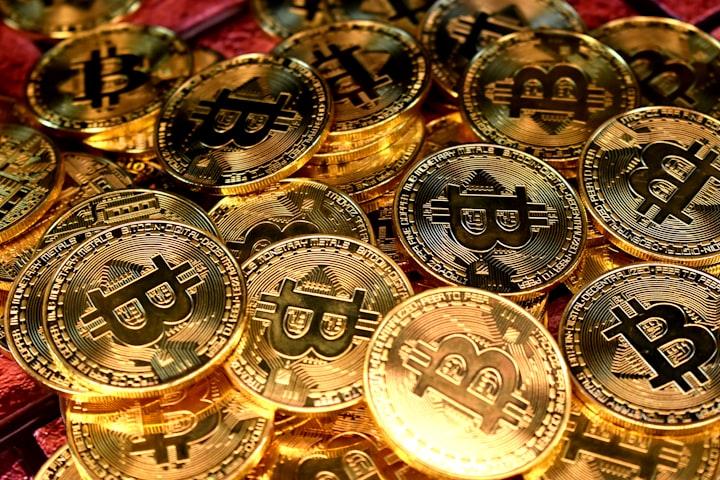Bitcoin & the Banks
The Threat to the Banking Industry

Over the last few weeks Jamie Dimon, Chief Executive of J.P. Morgan, has been leading the charge against bitcoin and other cryptocurrencies. Given that J.P Morgan had revenues of over 90 billion dollars last year, it at first seemed odd to me that Dimon would be so vocal in his opposition. Yet he has repeatedly gone out of his way over the past few months to trash bitcoin, even going so far as saying it should be banned. Dimon is no fool. He knows bitcoin has the potential to upend the banking industry. This is precisely why he is trying to kill it before it gets even close.
Banks work as a depository of information. In order to open an account, you have to go to a bank and give them the requisite information. Once that’s done, the bank is able to track all of the transactions that you conduct. For example, when I buy gas at Shell Oil, Shell’s computer system talks to JP Morgan’s computer system and verifies my information. It, Morgan, verifies that I have sufficient funds in my account to approve the transaction in question.
Governments like banks because of this central ledger system. It allows government as well to go to one “location” to track all of an individual’s transactions. So, if the IRS wants to freeze my accounts and garnish my wages, all they have to do is go to the bank and direct the bank to do so. The courts love it as well because in bankruptcy cases and civil judgements, there is an easy mechanism for freezing and seizing assets.
Enter bitcoin and it's not so easy. Allow me to explain.
The underlying software behind bitcoin is called “block-chain technology” which is a radical breakthrough in software technology. Information is spread out and stored in various locations. To conduct a trade in bitcoin requires the use of a “distributive ledger” as opposed to banks which operate with one central ledger. Obtaining information via bitcoin requires accessing multiple distributive ledgers.
Picture a wall full of books with a single book at the center of the wall. All of the other books around it support each other and are linked to each other. If I were to remove that one book, every other book around it would be impacted and would have to agree to the move. It is the same way with bitcoin. When I pay someone in bitcoin, a signal gets sent out to all of these ledgers that have to agree that I actually own this bitcoin. Once verified, I am able to “send” this bitcoin to where the transaction is verified and another “block” is built…which is verified by all of the other ledgers.
An additional benefit of bitcoin is that the individual’s identity is masked. There are no name associated with the amount of bitcoin you own. If someone were to look at a bitcoin transaction, all they would be able to see is “xys456 paid 26xgjky.” Without names, neither you nor anyone else can determine who owns these bitcoins.
Given 1) anonymity and 2) a distributive ledger, bitcoin ownership has exploded. The fact is, bitcoin and the blockchain technology are going to move ahead with or without approval of the U.S. government, with the banking industry exposed to the potential of being left behind. Think internet in the 1990s: banning it would have been pointless and not getting on board would have made you the equivalent of a technological dinosaur.
What most people don’t realize is that the U.S. has the most to lose with the advent of bitcoin because we have, by far, the deepest and strongest capital markets which force people to use the U.S. dollar. In addition, all commodity transactions are priced in dollars with the most important one being oil. Given the enormity of these markets, there is always a demand for dollars as well as government bonds. Our economy literally “sucks in” dollars from all over the world and our power is based on the fact that we are the reserve currency of the world.
Because there is such a demand for U.S. dollars we have the ability, through banking sanctions, to cut off countries from those dollars. Those central ledgers that banks control have allowed the U.S. to act as the global policeman. Look at Cuba. It was shut off from the global economy with debilitating results.
Bitcoin, cryptocurrencies and blockchain technology have the ability to upend the global banking system and U.S. dominance of it. This is why Jamie Dimon is bashing bitcoin. It's worth noting that Goldman Sachs, one of J.P. Morgan’s biggest competitors, has seen the light of this new technology and now employs more people in its technology department than LinkedIn or Twitter.
Blockchain technology will change and impact our lives in ways not yet imagined. Bitcoin offers an economy outside and irrespective of the U.S. dollar. It ends U.S. dominance of the world economy. This is the banking sector's greatest fear…and the terror of those who have disproportionately profited from that system.
Steve
About the Creator
Steven Clark
Former Marine. Father of six and Aikido practitioner






Comments
There are no comments for this story
Be the first to respond and start the conversation.